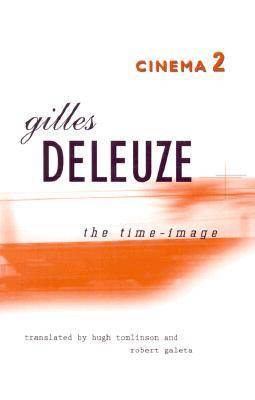

Cinema 2: The Time-Image
by Gilles Deleuze
Cinema 2: The Time-Image brings to completion Gilles Deleuze's work on the theoretical implications of the cinematographic image. In Cinema 1: The Movement-Image, Deleuze proposed a new way to understand narrative cinema, based on Henri Bergson's notion of the movement-image and C.S. Pierce's classification of images and signs. In Cinema 2, he explains why, since World War II, time has come to dominate film: the fragment or solitary image, in supplanting narrative cinema's rational development of events, illustrates this new significance of time. Deleuze ascribes this shift to the condition of postwar Europe: the situations and spaces 'we no longer know how to describe'—buildings deserted but inhabited, cities undergoing demolition or reconstruction—and the new race of characters who emerged from this rubble, mutants who 'saw rather than acted.' Deleuze discusses the films of Rossellini, De Sica, Fellini, Godard, Resnais, Antonioni, Pasolini, Rohmer, Ophuls, and many others, suggesting that contemporary cinema, far from being dead, is only beginning to find new ways to capture time in the image.
Release Date:
July 31, 1989

